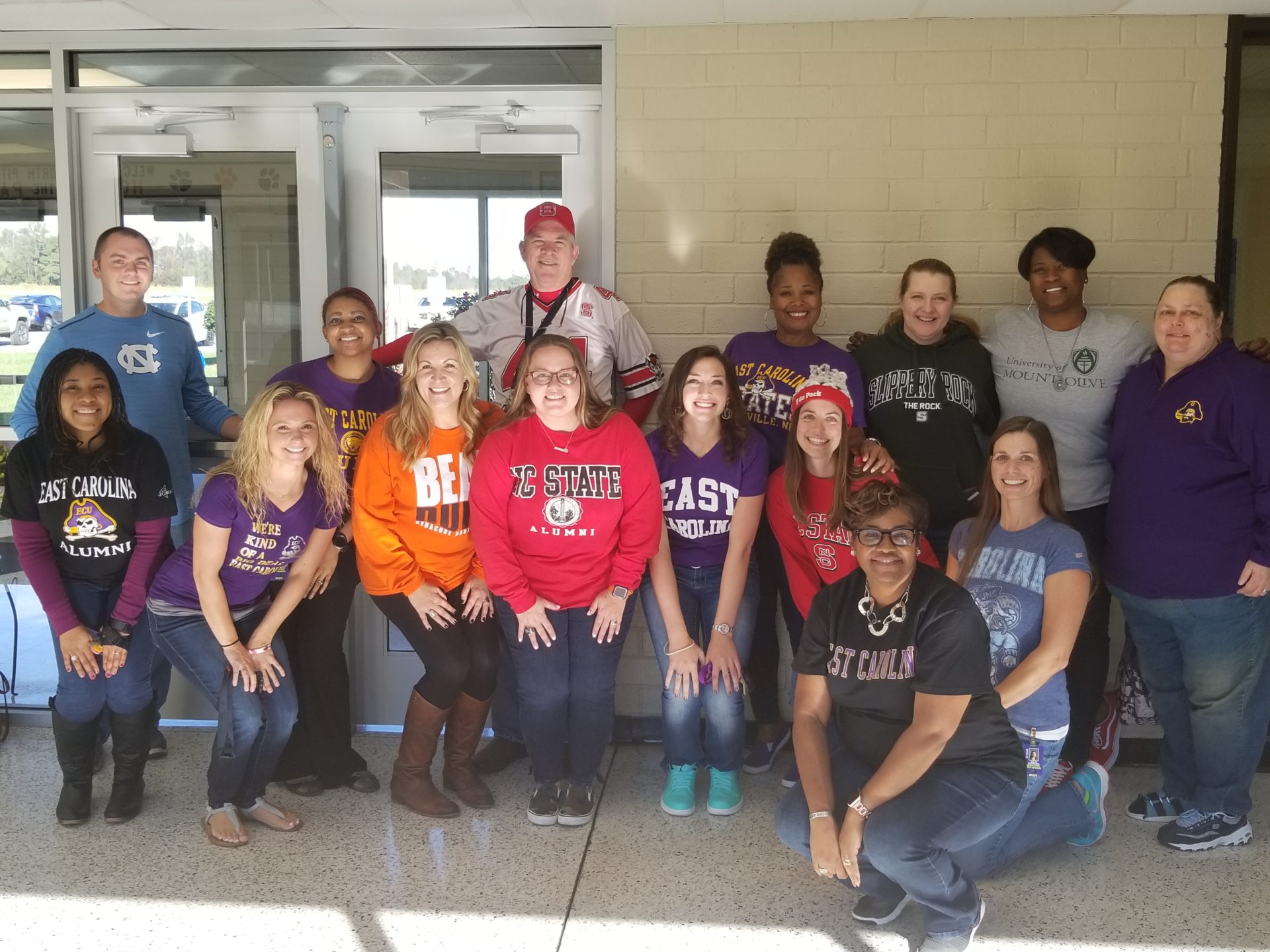We all need someone to believe in us

Written by Celeste Loia, College Adviser for North Pitt High School in Pitt County, NC.
[lead]We’ve all recently gone through the process ourselves. We see ourselves reflected in our students and the barriers they face in one way or another.[/lead]
One of the reasons the CAC advising model is so impactful is because the program hires recent college graduates to serve in our high schools. In my first year of advising, I thought I recalled freshly the barriers that I too faced as a high schooler. As a second year adviser looking toward my future after this school year ends, I have begun graduate school applications; through the graduate school application process, I have been harshly reminded of how it really feels to navigate all of these barriers again, providing me with a renewed empathy for my seniors as they navigate the college-going process. Many of these barriers have again become very salient to me: figuring out how to pay testing and application fees, the urge to procrastinate, the anxiety of requesting recommendation letters, and acknowledging how much I have relied on my network of peers who are navigating the process at the same time and those who have already gone through it.
[pullquote color=”wolfpackred” align=”alignleft”]…we also need to examine the systematic barriers hindering their success.[/pullquote]
As I jumped through hoops and waited weeks for my GRE fee reduction waiver to be processed, I was first reminded of the economic barriers our students face. Fortunately for our students, application fee waivers are pretty much universally accepted across the country; unfortunately for our students, that is just one of the economic barriers before them. They must also register for their standardized tests, for which eligible students may receive 2 SAT fee waivers and 2 ACT fee waivers. It’s easy to become angry with these students when they tell me the Monday after they were supposed to test that they didn’t make it, thus burning one of their two fee waivers for that test because whether a student shows up or not, the fee waiver is used. This often leaves my students either paying the $30 change of test date fee, $50 for a completely new registration, or unable to test at all. While some of the blame often lays with them for a missed test, whether it be oversleeping or forgetting their photo ID at home, we also need to examine the systematic barriers hindering their success. With the exception of the February ACT date offered to juniors in North Carolina, all SAT and ACT test dates are offered only on Saturdays, and for many students at locations that are further away than their high school. There is no bus transportation offered to students, so they are left to figure out how to get a ride on a Saturday morning, an especially challenging task for students without a license and with parents who work weekends. It’s a standardized testing system designed for middle- and high-income students.
[pullquote color=”wolfpackred” align=”alignright”]How much I have relied on my network of people reminds me of the importance of our role as college advisers.[/pullquote]
As I have navigated grad school applications, it has become evident to me that I would not be able to do this alone. When I decided I wanted to pursue a master’s degree, I had no idea where one even starts the process. Through my high school French teacher, I learned how to search graduate school programs to find ones offering my area of interest. From my network of advisers I learned how to request application fee waivers. And through my boss and close friends, I was able to enhance and revise my personal statement and resume. Unable to rely on my parents for grad school know-how, I would be lost without this strong network. How much I have relied on my network of people reminds me of the importance of our role as college advisers. Sometimes in my role as an adviser, I become frustrated with questions that my students ask, perceiving the answer as obvious. The grad school application process has been a gentle reminder that sometimes without a network of support and know-how, navigating the world of higher education is not as self-evident as we would like it to be. I have a renewed patience for my students and their questions. We all need someone in our corner, helping us navigate our futures; for many of our first-generation students who can’t rely on this know-how at home, we are their only network helping them through a higher education system never intended to cater to first-generation, low-income, underrepresented students (Martinez Cantellano 2018).
It’s because of these barriers that I believe we, as college advisers, must not stop at assisting students with navigating their college options and assisting with test registrations; we must also work to remove these systemic barriers and advocate for our students at every level — institutional, state, and national. We must use our unique position working for these institutions of higher education to advocate for our students so that they may, one day, be in a space at these institutions where they can advocate for themselves. We must use our in-depth knowledge of our states’ educational policies, including those actively limiting access to higher education, to advocate for better, more inclusive educational frameworks in our states. We must use our nationwide network of advisers to advocate and push for the federal level changes our education system needs so higher education is equitable and attainable for all.
- Categories:


